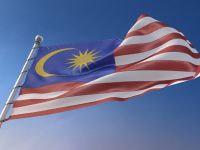Afghanistan's former king and opposition leaders agreed in Rome Monday on steps to replace the ruling Taliban militia with a new elected head of state and a transitional government, a statement said.
The sides agreed to form a "Supreme Council for the National Unity of Afghanistan" which would convene an emergency session of the Loya Jirga, an assembly of traditional chiefs, to elect the head of state and members of the transitional government, it said.
The agreement came after more than two days of intensive negotiations between the opposition and former king Mohammed Zahir Shah, who was ousted from power in 1973.
The move comes as pressure mounts on Afghanistan's Taliban regime to hand over Osama bin Laden -- prime suspect in the September 11 attacks on the United States -- or face the consequences.
Pakistan President Pervez Musharraf warned that the Taliban's days were numbered after the hard-line regime again refused to yield to US demands to hand over bin Laden.
The statement added that the council would have the authority to appoint a leader and government directly "in the case of a dire situation, whereby an emergency Loya Jirga cannot be convened as agreed."
Zahir Shah, 86, has emerged as a potential unifying force in Afghanistan in the aftermath of the September 11 attacks on the United States and international calls for the Taliban to hand over bin Laden -- believed to be sheltered by the radical Islamic regime.
Talks over the weekend between the ex-king and a delegation of US congressmen concluded with Zahir Shah saying that the fundamentalist Taliban could still play a role in a future coalition government in the country.
In a preemptive move to the Loya Jirga, the Taliban announced that it was ready to share power with tribal elders in three provinces, the Pakistan-based Afghan Islamic Press (AIP) said.
The report is the first admission from the militia of any cracks in their overwhelming power in Afghanistan, and is the first time the Taliban have agreed to any form of power sharing in their seven-year campaign.
Loya Jirga's have shaped the form of modern Afghanistan up until the ouster of the king in 1973, but meetings seen as imposed by outsiders have never carried any weight.
Meaning "Grand Assembly" in Pashtu, the language of Afghanistan's dominant ethnic group, getting a Loya Jirga under way will also be an enormous task.
An assembly can convene for just a day or several months, bringing together hundreds of participants in Afghanistan's seat of power, Kabul. No time limits are set, and its decisions are binding -- ROME (AFP)
© 2001 Al Bawaba (www.albawaba.com)







